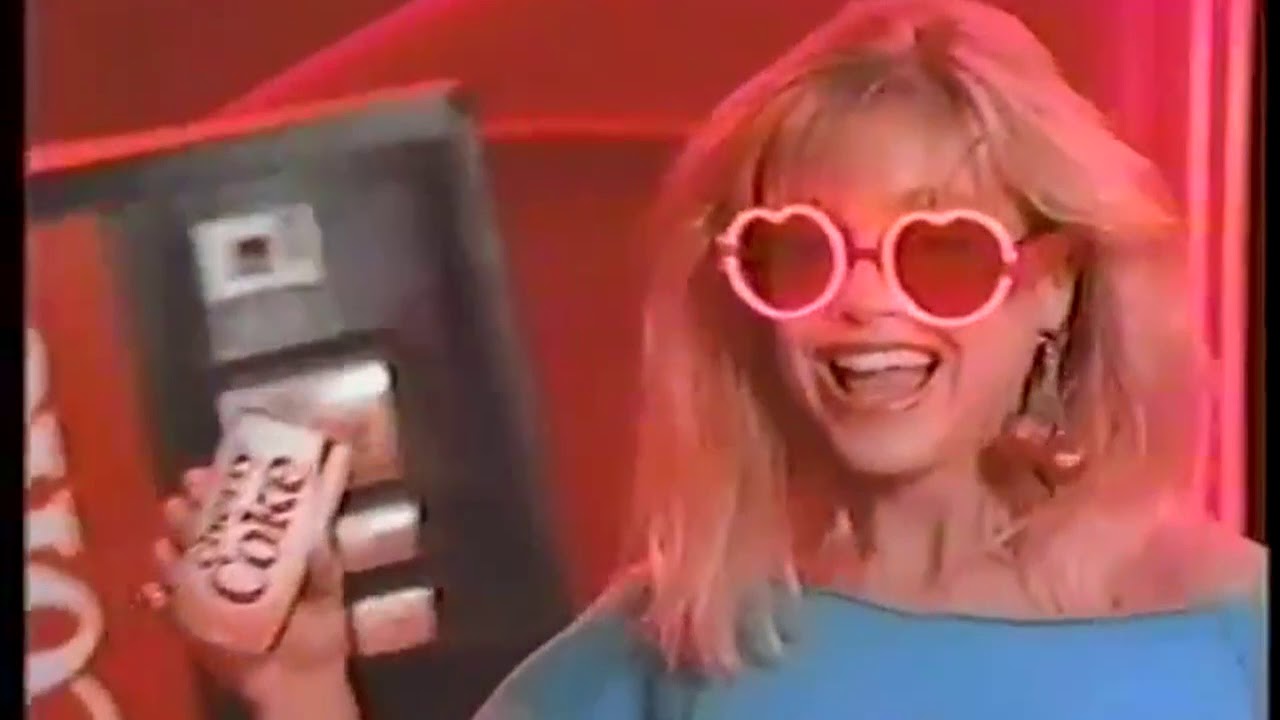Cherry Coca-Cola: A Pop Culture Phenomenon
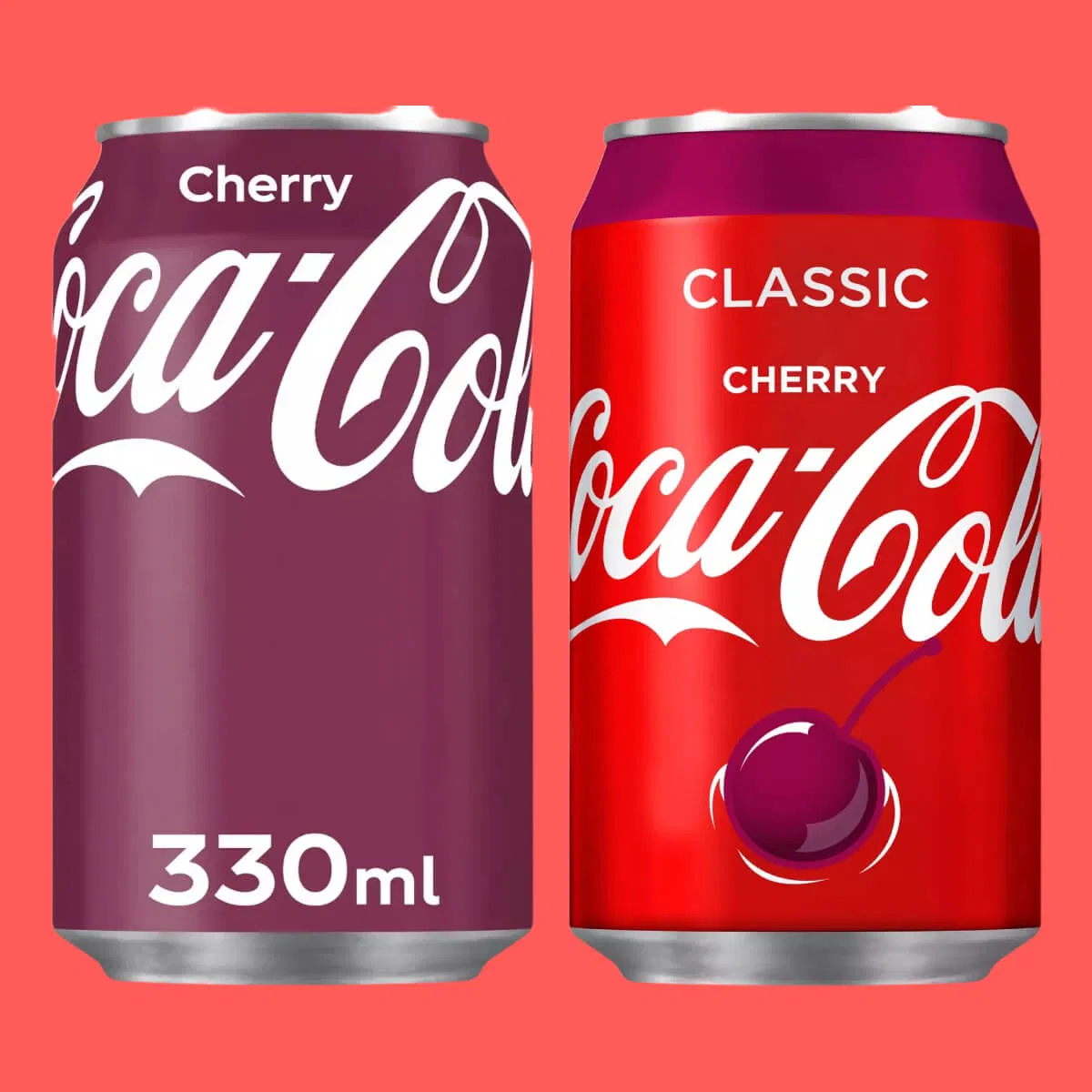
Cherry Coca-Cola, commonly known as Cherry Coke, is one of the most iconic and beloved variations of the classic Coca-Cola beverage. Introduced in the United States in 1985, this cherry-flavoured soda has since become a staple in the soft drink industry and a favourite among soda enthusiasts worldwide. Its distinct, refreshing taste and vibrant history have cemented its place in pop culture and consumer hearts.
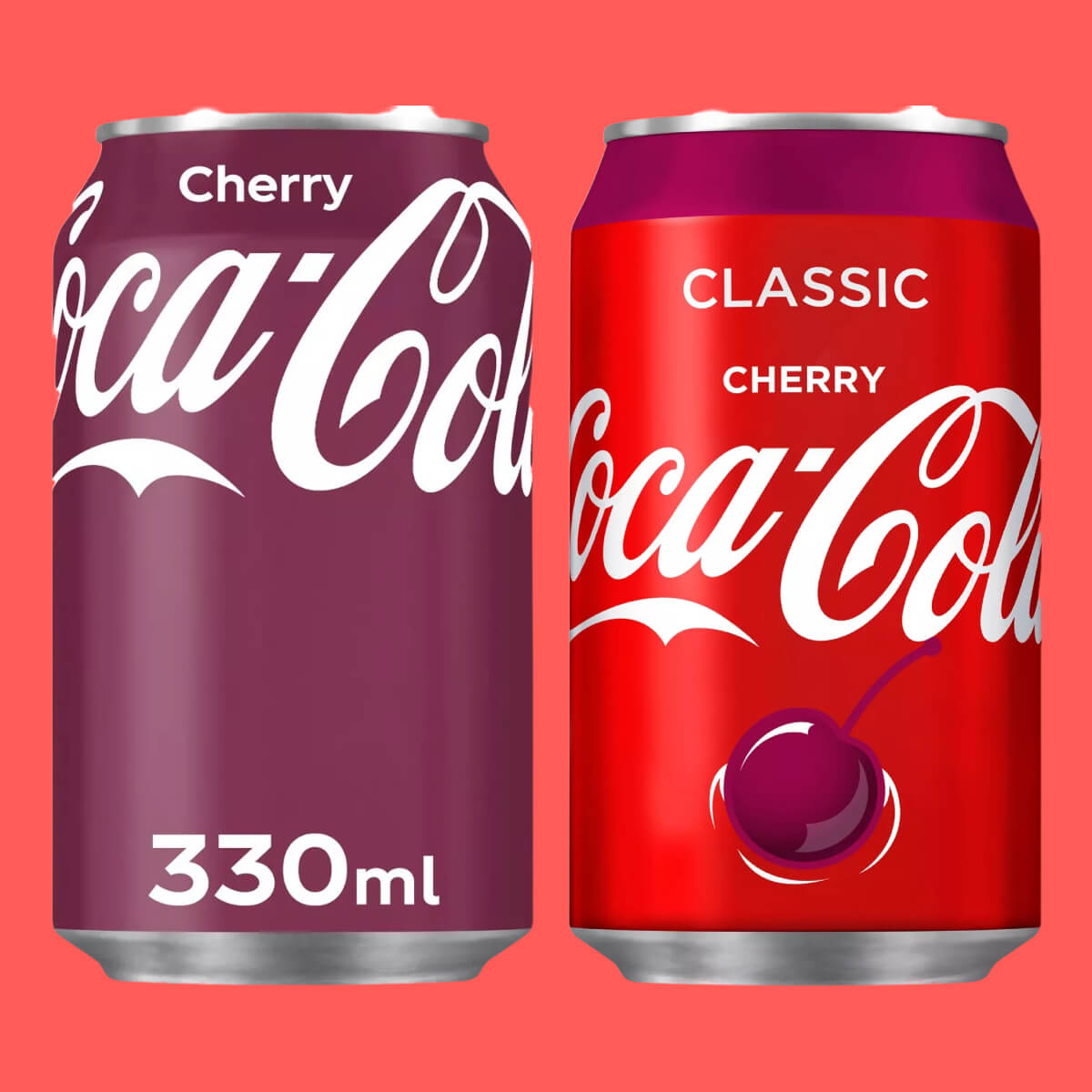
The Origins of Cherry Coke
The concept of cherry-flavoured cola dates back to drink dispensers (known as soda fountains in the U.S.) in the 1950s, when customers often added cherry syrup to their Coca-Cola. Cherry-flavored syrup was added to Cola in cafes/diners and cinemas, creating an unofficial version of the drink.
Recognising the popularity of this combination, Coca-Cola decided to officially launch Cherry Coke as a product in 1985. This was a significant move, marking Coca-Cola's first major flavour extension of its flagship product.
The launch of Cherry Coke was a part of Coca-Cola's broader strategy to diversify its product line and appeal to a younger audience. The timing was impeccable, as the mid-1980s were characterized by growing consumer interest in new and unique flavours. Cherry Coke quickly captured the public's imagination with its bold cherry taste and the familiar, classic Coca-Cola flavour.
Disclosure: This page contains affiliate links. As an Amazon associate, I earn from qualifying purchases.
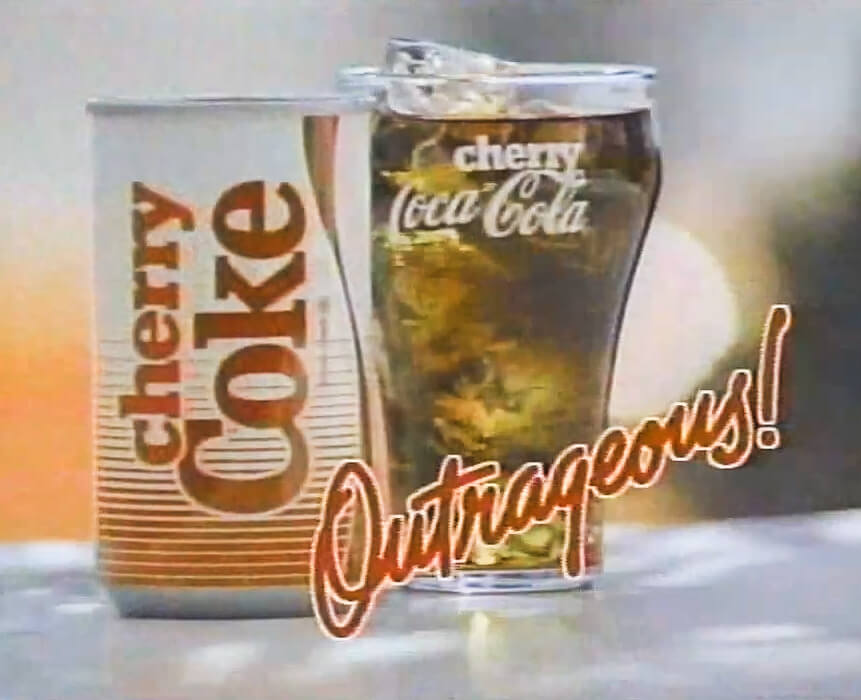
This advert is from 1985 and features the original striped can
Marketing and Cultural Impact
Cherry Coke's introduction was backed by a robust marketing campaign featuring colourful advertisements and catchy jingles that resonated with the youthful demographic. The brand leveraged popular culture, enlisting celebrities and integrating the product into movies and TV shows to boost its visibility.
One of the most memorable marketing efforts was the collaboration with the 1980s pop band Cameo in 1987. In the commercial, the band sang their hit song "Word Up" which had altered lyrics. Critics accused the band of "selling out".
Cherry Coke's impact on popular culture extended beyond music. It became a frequent prop in films and television shows, symbolizing a trendy, youthful lifestyle. The beverage's distinct can design, with its bold red and white colour scheme and dynamic typography, became instantly recognisable and symbolised 1980s and 1990s nostalgia.
The original American TV advert from 1985 is more 80s than the 80s itself! It feels almost like a parody. It comes with the simple tagline "Outrageous!".
Diet Cherry Coke
Over the years, Cherry Coke has undergone various transformations to keep up with changing consumer preferences and market trends. In the early 2000s, Coca-Cola introduced Diet Cherry Coke (later rebranded as Coca-Cola Cherry Zero), catering to health-conscious consumers seeking a low-calorie alternative without sacrificing flavour.
When Was Diet Cherry Coke Discontinued?
In a flavour shake-up, Diet Coke Cherry was kicked to the curb in favour of Diet Coke Feisty Cherry. This new version boasted a more intense cherry punch than the original. The switch affected both the US and UK markets, with Feisty Cherry taking the stage in 2018. But Feisty Cherry's reign was short-lived. By December 2020, Coca-Cola announced it would be removed from US shelves, and the UK soon followed suit.
Coca Cola Cherry Zero
Coca-Cola Cherry Zero was introduced to the United States in February 2007, and in 2012 was introduced across the globe. However, it wasn't made available in the UK until 2014.
Cherry Coke Zero Sugar is currently available to buy in the UK and the U.S.
Experimentation
The brand has also experimented with limited-edition packaging and special releases to keep the product exciting and relevant. For example, in 2018, Coca-Cola launched a new marketing campaign featuring retro-style cans and bottles, appealing to long-time fans and a new generation of consumers drawn to vintage aesthetics.
In recent years, Coca-Cola has continued to innovate with Cherry Coke, introducing it in new formats such as Coca-Cola Freestyle machines, which allow consumers to customize their drinks with various flavour combinations. This adaptability has helped Cherry Coke maintain its popularity in an increasingly competitive beverage market.
Conclusion
Cherry Coke's enduring appeal lies in its unique flavour, nostalgic charm, and ability to adapt to changing consumer tastes. From its humble beginnings as a soda fountain concoction to its status as a pop culture icon, Cherry Coke has carved out a special place in the hearts of soda lovers worldwide.
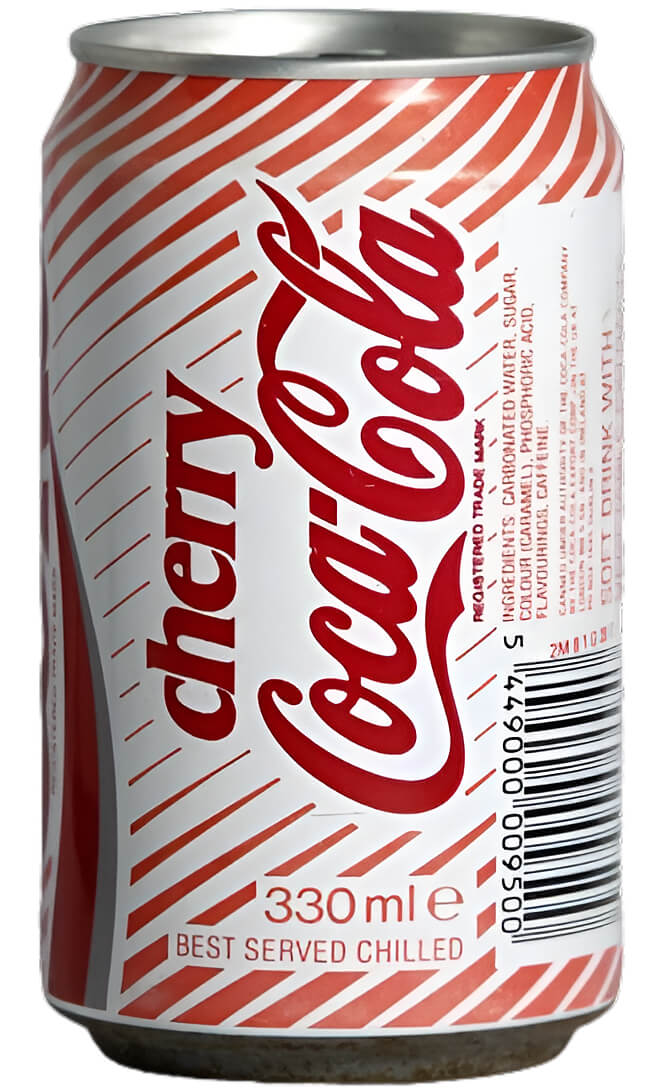
This can is from 1987 (UK)
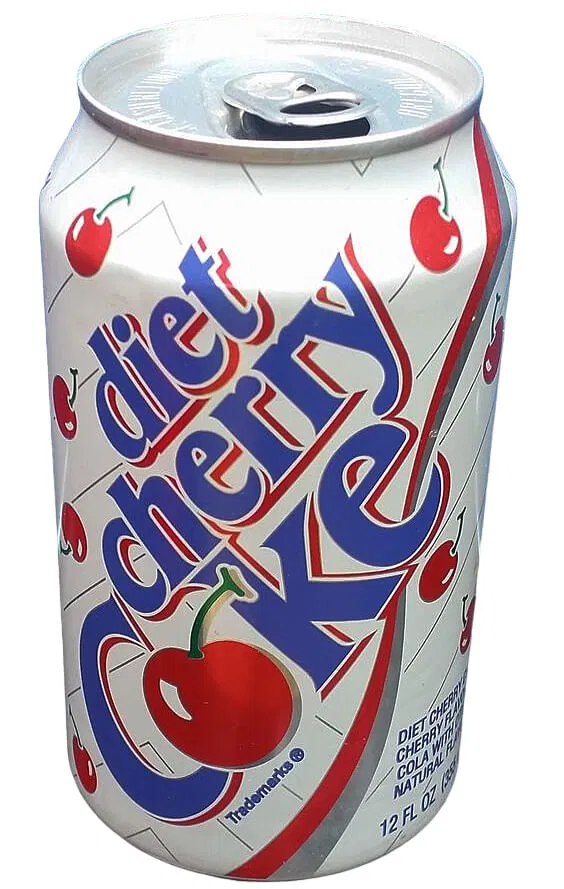
Diet Cherry Coke can (U.S.) from 1993
